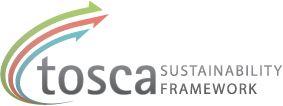Value chain activities
- Identify your product value chain
- Strategy & organisation
- Upstream supply chain
- Own manufacturing
- AkzoNobel: Measurement and follow up of own operations
- AkzoNobel: Code of conduct
- AkzoNobel: Eco-efficiency assessment to evaluate production alternatives
- SCA: Olawa factory is powered by nature
- SCA: Environmental management system
- SCA: Resource management system (RMS)
- SCA: Occupational health and safety
- SCA: Chemical assessments
- Customers and consumers
- Develop more sustainable products
- End-of-life of products
- Other stakeholders
Measurement and follow up of own operations
For most of AkzoNobel products’, the footprint of our direct activities is low compared with the impact of the production of the raw materials and the use of our products. However, improving operational efficiency is an important element of our manufacturing processes. We need to keep our focus on cost reduction, environmental protection and more effective use of raw materials, water and energy.
Expert groups for waste and waste water, energy and fresh water have been created to accelerate this improvement activity. They provide support for site assessment and improvement activities, and provide a means of sharing good practice across the company.
This work operates on several levels:
- Incremental improvements focusing on reducing waste, energy, water or raw materials by more efficient operations. Engineers work with procurement professionals to find alternative uses for waste and waste water, for example as a raw material for another process, or to find more cost-effective disposal routes
- Process or product design improvements providing scope for eliminating waste at source and more energy-efficient operations
- Working to develop new, inherently low footprint technology.
Waste improvements and energy opportunities
- Using the principles of reduce, reuse and recycle, our Packaging Coatings plant in Spain has reduced waste cleaning solvent use by 25 percent in one year and saved €64,000.
- One of our Surface Chemistry plants in Sweden has reduced the chemical oxygen demand of its waste water by 75 percent by installing a continuous monitor and improving employee awareness training.
- An Industrial Chemicals plant in the Netherlands has saved €0.6 million in product and reduced the chemical oxygen demand of its waste water by more than 50 percent by improving operating practices.
- Recent detailed energy efficiency diagnostics have identified improvement opportunities of between 30 and 35 percent over three years at a Specialty Chemicals plant in the US and a coatings plant in Germany.

